The Ultimate Guide to Anti-Aging Skincare
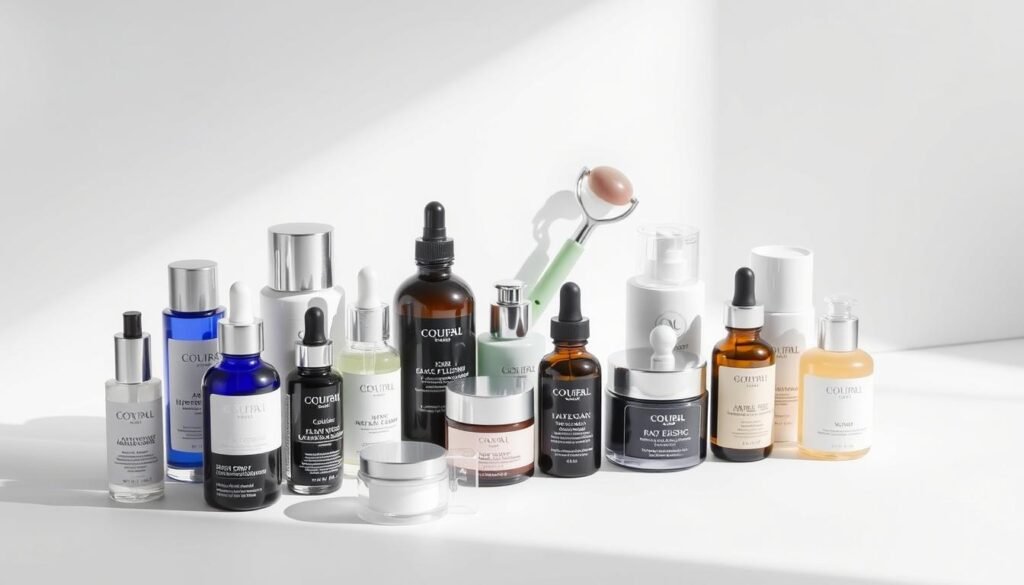
Did you know that the global anti-aging skincare market is projected to reach $60.2 billion by 2027? This staggering figure highlights the growing concern for maintaining youthful skin as we age.
As we get older, our skin undergoes significant changes, including reduced collagen production, increased fine lines, and age spots. A well-crafted skincare routine can help mitigate these effects, promoting healthier and more radiant skin.
By understanding the causes of skin aging and implementing effective anti-aging strategies, you can achieve a more youthful appearance. In this guide, we’ll explore the best anti-aging skincare products and techniques to help you maintain healthy, youthful-looking skin.
Key Takeaways
- Understanding the causes of skin aging is crucial for effective anti-aging skincare.
- A consistent skincare routine can significantly improve skin health.
- The right products can make a big difference in anti-aging skincare.
- Simple lifestyle changes can enhance the effectiveness of your skincare routine.
- A combination of prevention and treatment is key to maintaining youthful skin.
Understanding Skin Aging: The Science Behind Wrinkles
Skin aging is a complex process influenced by a combination of genetic and environmental factors. As we age, our skin’s ability to regenerate and maintain its structure begins to decline, leading to the visible signs of aging such as wrinkles and fine lines.
How Skin Ages Naturally
Naturally, skin aging is a result of the gradual decline in the production of collagen and elastin, two proteins that give skin its strength and elasticity. As collagen and elastin production decrease, skin becomes thinner, less firm, and more prone to wrinkles.
The natural aging process also affects the skin’s ability to retain moisture, leading to dryness and a dull appearance. Understanding these changes is crucial for developing an effective anti-aging skincare routine.
External Factors That Accelerate Aging
While natural aging is inevitable, external factors can significantly accelerate the process. UV exposure from the sun or tanning beds is a major contributor to skin aging, causing photoaging that leads to wrinkles, age spots, and loss of skin elasticity.
Other external factors include smoking, which reduces blood flow to the skin and damages its elasticity, and pollution, which can lead to the formation of free radicals that damage skin cells. Understanding these factors can help in taking preventive measures.
The Role of Collagen and Elastin
Collagen and elastin are crucial for maintaining youthful skin. Collagen provides strength and structure, while elastin allows skin to snap back into place. As we age, the production of these proteins decreases, leading to the visible signs of aging.
Using skincare products that contain ingredients that support collagen and elastin production, such as retinoids and peptides, can help mitigate some effects of aging.
The Benefits of Anti-Aging Skincare
Anti-aging skincare is not just about aesthetics; it’s about maintaining skin health over time. By adopting a consistent skincare routine, individuals can enjoy numerous benefits that extend beyond mere cosmetic improvements.
Preventative vs. Corrective Approaches
Anti-aging skincare can be broadly categorized into preventative and corrective approaches. Preventative skincare focuses on protecting the skin from environmental stressors and maintaining its natural barrier function. This approach is particularly beneficial for younger individuals looking to delay the onset of aging signs. On the other hand, corrective skincare aims to address existing skin concerns such as fine lines, wrinkles, and age spots.
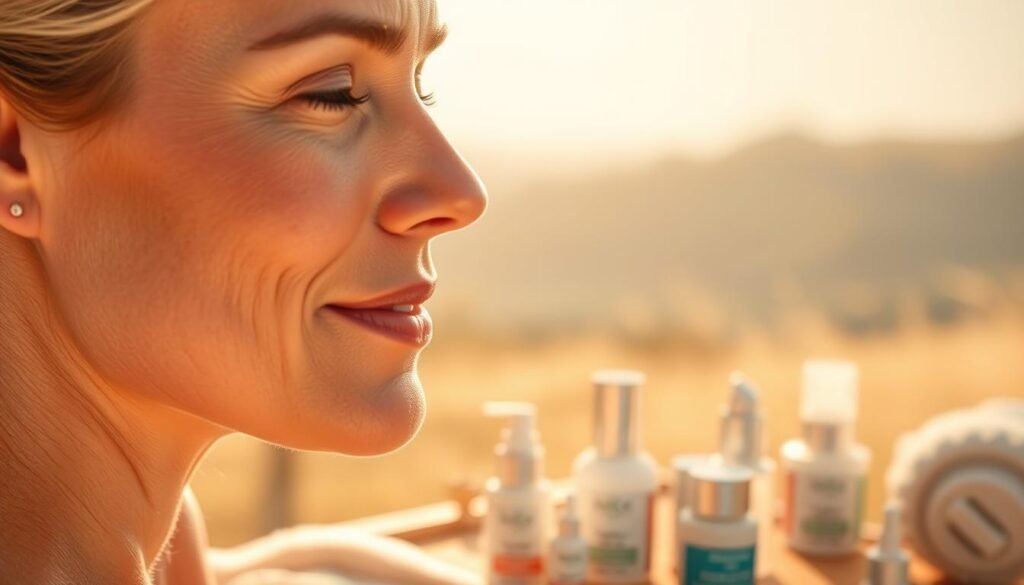
Realistic Expectations and Timeline
It’s essential to have realistic expectations when starting an anti-aging skincare routine. While some products may promise overnight miracles, most anti-aging benefits are achieved over time with consistent use. Typically, individuals can start noticing improvements in skin texture and tone within a few weeks, while more significant anti-aging benefits, such as reduced fine lines and wrinkles, may take several months to become apparent.
Long-term Skin Health Advantages
Beyond the immediate cosmetic benefits, anti-aging skincare offers long-term advantages for skin health. By maintaining a consistent routine, individuals can enhance their skin’s resilience to environmental stressors, improve its natural barrier function, and reduce the risk of age-related skin conditions. This proactive approach to skincare not only improves the appearance of the skin but also contributes to its overall health and well-being.
By understanding the benefits of anti-aging skincare and adopting a tailored approach, individuals can make informed decisions about their skincare routine, ultimately leading to healthier, more radiant skin over time.
Essential Anti-Aging Skincare Ingredients
Unlock the secret to smoother, more vibrant skin by incorporating essential anti-aging ingredients into your routine. The effectiveness of anti-aging skincare is largely dependent on the presence of clinically-backed, powerful ingredients that target various signs of aging.
Retinoids: The Gold Standard
Retinoids, derivatives of vitamin A, are considered the gold standard in anti-aging skincare. They work by promoting cell turnover, reducing the appearance of fine lines and wrinkles, and enhancing skin texture. Regular use of retinoids can lead to significant improvements in skin clarity and a more youthful appearance.
Antioxidants: Vitamin C, E, and Ferulic Acid
Antioxidants play a crucial role in combating free radicals that damage skin cells and accelerate aging. Vitamin C, Vitamin E, and Ferulic Acid are potent antioxidants that, when used together, enhance their individual benefits. They help in brightening the skin, reducing oxidative stress, and protecting against environmental stressors.
| Antioxidant | Benefits |
|---|---|
| Vitamin C | Brightens skin, boosts collagen production |
| Vitamin E | Protects against environmental damage, moisturizes |
| Ferulic Acid | Enhances stability of vitamins C and E, provides additional antioxidant protection |
Peptides and Growth Factors
Peptides are short chains of amino acids that can stimulate collagen production, improving skin elasticity and reducing wrinkles. Growth factors are proteins that promote cell growth and renewal. Together, they can significantly enhance skin texture and firmness.
Hyaluronic Acid and Ceramides
Hyaluronic Acid is renowned for its ability to retain moisture, providing hydration and plumping to the skin. Ceramides help restore the skin’s barrier function, improving its resilience against environmental stressors and reducing moisture loss.
By understanding and incorporating these essential anti-aging skincare ingredients, individuals can create a more effective skincare routine tailored to their specific needs.
Building an Effective Anti-Aging Skincare Routine
To combat signs of aging, it’s essential to develop a personalized skincare routine that addresses your specific skin concerns. A consistent and well-structured routine can significantly impact the appearance and health of your skin over time.
Morning Routine Essentials
Starting your day with the right skincare products can help protect your skin from environmental stressors and lay the groundwork for a healthy, youthful complexion. Essential products for a morning anti-aging routine include:
- A gentle cleanser to remove overnight impurities
- A vitamin C serum to boost collagen production and brighten the skin
- A moisturizer with SPF to hydrate and protect against UV damage
For those with sensitive skin, it’s crucial to choose products that are fragrance-free and hypoallergenic to minimize irritation.
Evening Routine Must-Haves
Your evening skincare routine is an opportunity to repair and rejuvenate your skin. Key products to include are:
- A gentle exfoliant or chemical exfoliant containing alpha-hydroxy acids (AHAs) or beta-hydroxy acids (BHAs) to remove dead skin cells
- A retinol or retinoid product to stimulate collagen production and cell turnover
- A nourishing moisturizer or night cream to hydrate and support skin health
For an added boost, consider incorporating a facial oil or serum that targets your specific skin concerns, such as fine lines, dark spots, or dehydration.
Weekly Treatments and Masks
In addition to your daily routine, incorporating weekly treatments and masks can provide an intense dose of nourishment and rejuvenation. Consider the following:
| Treatment | Benefits | Frequency |
|---|---|---|
| Sheet masks | Hydration, brightening, or firming | 1-2 times a week |
| Exfoliating masks | Removing dead skin cells, unclogging pores | 1 time a week |
| Face masks with antioxidants | Protecting against environmental stressors, reducing signs of aging | 1-2 times a week |
By tailoring your skincare routine to your skin’s needs and incorporating a mix of daily care and weekly treatments, you can effectively combat signs of aging and maintain a healthy, youthful appearance.
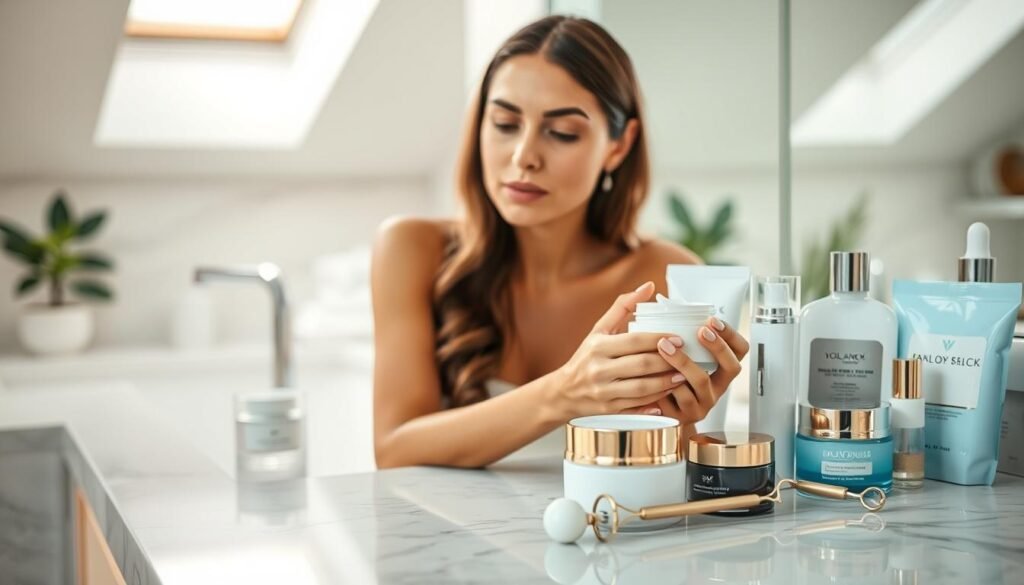
Best Anti-Aging Skincare Products for Different Age Groups
Anti-aging skincare isn’t one-size-fits-all; different age groups benefit from distinct product formulations. As we age, our skin undergoes various changes that require tailored approaches to maintain its health and appearance.
Preventative Care: 20s and 30s
In your 20s and 30s, the focus should be on prevention. Using products rich in antioxidants and mild exfoliants can help prevent early signs of aging. Look for products containing Vitamin C and retinol, which are known for their anti-aging properties.
- Vitamin C serums to brighten and protect the skin
- Gentle exfoliants like alpha-hydroxy acids (AHAs) to remove dead skin cells
- Moisturizers with hyaluronic acid to keep the skin hydrated
Treatment Focus: 40s and 50s
During your 40s and 50s, skin starts to show more pronounced signs of aging, such as wrinkles and loss of firmness. Products with peptides and growth factors can help address these concerns by stimulating collagen production and improving skin elasticity.
- Serums with peptides to reduce fine lines and wrinkles
- Creams with growth factors to enhance skin regeneration
- Eye creams to target the delicate skin around the eyes
Intensive Care: 60s and Beyond
In your 60s and beyond, the skin requires intensive care to combat deep wrinkles, dryness, and loss of elasticity. Look for rich moisturizers and creams containing hyaluronic acid and ceramides, which help to lock in moisture and repair the skin’s barrier.
- Rich moisturizers to combat dryness and provide hydration
- Creams with ceramides to repair the skin’s barrier function
- Products with antioxidants to protect against environmental stressors
Regardless of your age, it’s essential to choose products that are suitable for your skin type and concerns. Always patch test new products and consult with a dermatologist if you’re unsure about the best products for your skin.
Natural Anti-Aging Skincare Approaches
Embracing natural anti-aging skincare approaches can be a game-changer for those seeking a more holistic path to youthful skin. As people become more aware of the ingredients in their skincare products, there’s a growing interest in leveraging nature’s resources to combat aging.
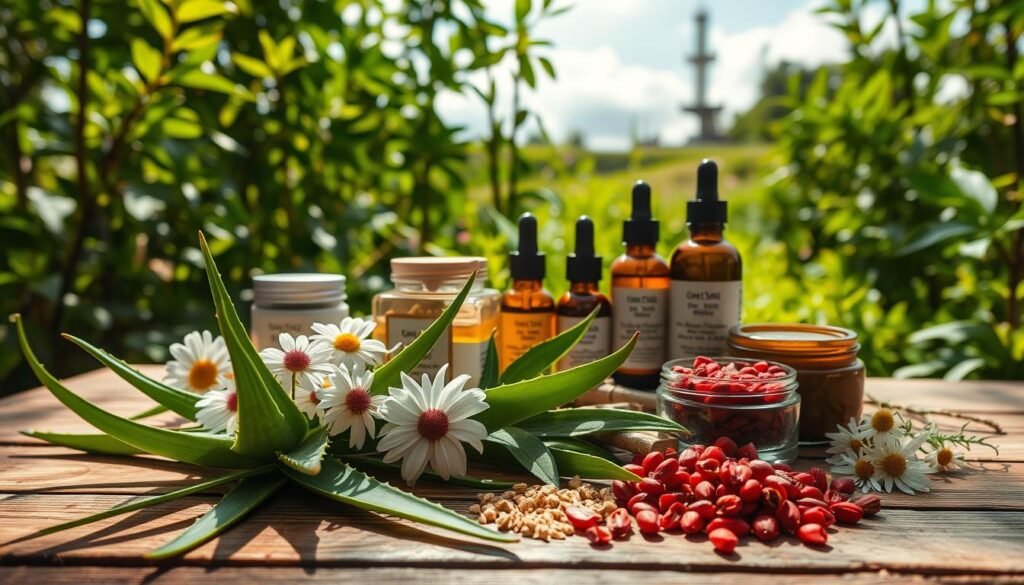
Plant-Based Ingredients That Work
Plant-based ingredients have been at the forefront of natural anti-aging skincare. Antioxidant-rich extracts from plants like green tea, rosemary, and grape seed can help protect the skin from environmental stressors. Other effective ingredients include:
- Aloe vera for its soothing and moisturizing properties
- Turmeric for its anti-inflammatory benefits
- Retinol-like compounds found in bakuchiol, which offer retinoid-like benefits without the irritation
DIY Anti-Aging Remedies
Creating your own anti-aging remedies at home can be both fun and effective. Some popular DIY treatments include:
- Face masks made from honey and avocado for deep moisturizing
- Exfoliating scrubs using sugar or salt mixed with olive or coconut oil
- Toners made from rose water or witch hazel to balance skin pH
Holistic Approaches to Aging Well
A holistic approach to anti-aging involves more than just topical treatments; it’s about adopting a lifestyle that supports overall well-being. This includes:
- Nutritional balance: Eating a diet rich in fruits, vegetables, and omega-3 fatty acids
- Adequate hydration: Drinking plenty of water throughout the day
- Stress management: Practicing yoga, meditation, or other relaxation techniques
- Quality sleep: Ensuring you get enough restful sleep each night
By incorporating these natural anti-aging skincare approaches into your daily routine, you can work towards achieving healthier, more youthful-looking skin.
Anti-Aging Skincare for Different Skin Types
The key to successful anti-aging skincare lies in understanding and catering to your skin’s unique needs. Different skin types have distinct requirements, and using products that are not suited to your skin can lead to inefficacy or even adverse reactions.
Dry and Mature Skin Solutions
Dry and mature skin often lack moisture and elasticity. To combat this, focus on hydrating products rich in emollients and humectants.
- Use gentle cleansers that don’t strip the skin of its natural oils.
- Apply rich moisturizers and serums containing hyaluronic acid and ceramides.
- Exfoliate carefully to avoid irritating the skin.
As Dr. Joshua Zeichner, a dermatologist, notes, “Dry skin can be particularly challenging because it tends to look dull and flaky. Hydrating ingredients can help restore the skin’s barrier function.”
Combination and Oily Skin Strategies
For combination and oily skin, the focus should be on controlling sebum production while addressing signs of aging.
- Use lightweight, oil-free moisturizers.
- Exfoliate regularly with products containing salicylic acid or glycolic acid.
- Consider products with retinol to promote cell turnover.
| Skin Type | Key Concerns | Product Recommendations |
|---|---|---|
| Dry/Mature | Moisture loss, elasticity | Rich moisturizers, hyaluronic acid serums |
| Combination/Oily | Sebum control, aging signs | Oil-free moisturizers, salicylic acid products |
| Sensitive | Irritation, redness | Gentle, fragrance-free products, soothing ingredients |
Anti-Aging Skincare for Sensitive Skin
Sensitive skin requires a gentle approach to anti-aging. Opt for fragrance-free products and look for soothing ingredients like aloe vera.
- Patch test new products to check for adverse reactions.
- Use calming masks and serums containing green tea or chamomile.
- Avoid harsh exfoliants and opt for gentle, chemical-based exfoliators.
By tailoring your anti-aging skincare routine to your specific skin type, you can more effectively address your skin’s unique concerns and achieve a more youthful appearance.
Advanced Anti-Aging Treatments and Procedures
Advanced anti-aging treatments and procedures have become increasingly popular for their effectiveness in rejuvenating the skin. As we age, our skin undergoes various changes, including the loss of collagen, elasticity, and the appearance of fine lines and wrinkles. While a consistent skincare routine is essential, some individuals may require more intensive solutions to address their aging concerns.
Professional Treatments Worth Considering
Professional treatments offer a range of options for those seeking to combat signs of aging. Some of the most effective treatments include:
- Chemical Peels: A solution is applied to remove the top layers of the skin, revealing smoother, less wrinkled skin.
- Microdermabrasion: A non-invasive exfoliating treatment that helps to remove dead skin cells and promote cell turnover.
- Laser Therapy: Uses laser technology to stimulate collagen production, reduce fine lines, and improve skin texture.
- Botulinum Toxin: Temporarily relaxes facial muscles to reduce the appearance of wrinkles and fine lines.
- Dermal Fillers: Injectables used to fill in deep lines, enhance lips, and restore lost volume.
At-Home Devices and Tools
For those who prefer to manage their anti-aging regimen at home, various devices and tools can complement professional treatments. These include:
- LED Light Therapy Devices: Use different wavelengths of light to target various skin concerns, such as acne, aging, and hyperpigmentation.
- Microcurrent Devices: Stimulate facial muscles and improve skin texture through gentle electrical currents.
- Radiofrequency Devices: Heat the deeper layers of the skin to stimulate collagen production and tighten the skin.
When to Consider Medical Interventions
While many anti-aging treatments can be managed through skincare routines and at-home devices, some concerns may require medical interventions. It’s essential to consult with a dermatologist or skincare professional to determine the best course of action. Medical interventions might include more invasive procedures like facelifts, chemical peels, or laser resurfacing, depending on the individual’s skin concerns and health.
In conclusion, advanced anti-aging treatments and procedures offer a wide range of solutions for individuals looking to rejuvenate their skin. From professional treatments to at-home devices, there’s a wealth of options available. Understanding the available treatments and consulting with skincare professionals can help individuals make informed decisions about their anti-aging skincare journey.
Lifestyle Factors That Support Anti-Aging Skincare
The journey to youthful, vibrant skin isn’t just about what you apply topically, but also about how you live your life. A healthy lifestyle can significantly enhance the effectiveness of your anti-aging skincare routine.
Nutrition for Youthful Skin
A diet rich in fruits, vegetables, whole grains, and lean proteins provides essential nutrients that support skin health. Foods high in antioxidants, such as berries and leafy greens, help combat free radicals that can damage skin cells.
- Omega-3 fatty acids found in fish and nuts help reduce inflammation.
- Vitamin C in citrus fruits and bell peppers boosts collagen production.
- Zinc in beans and nuts supports wound healing and skin regeneration.
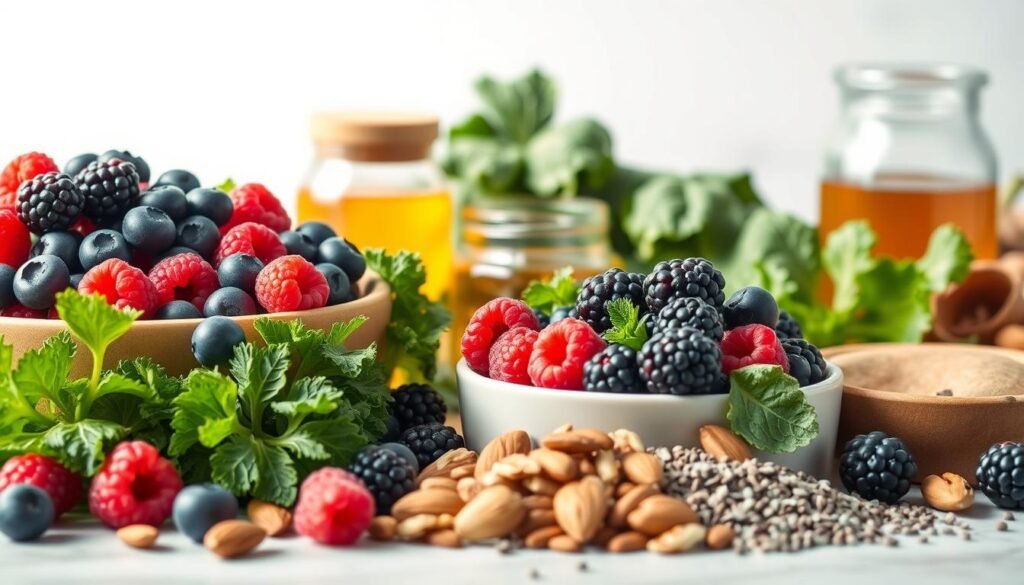
The Impact of Sleep and Stress
Adequate sleep and stress management are crucial for skin health. Poor sleep can lead to increased cortisol levels, which can cause inflammation and breakouts.
- Aim for 7-9 hours of sleep per night to help your skin regenerate.
- Practice stress-reducing techniques like meditation or yoga to minimize cortisol’s impact.
Exercise and Its Effects on Skin Aging
Regular exercise improves circulation, boosting the delivery of oxygen and nutrients to the skin. It also helps reduce stress and improve sleep quality.
| Exercise Type | Benefits for Skin |
|---|---|
| Cardio | Improves circulation, enhancing skin tone |
| Strength Training | Boosts collagen production, reducing fine lines |
| Yoga | Reduces stress, improving overall skin health |
By incorporating these lifestyle factors into your daily routine, you can support your anti-aging skincare efforts and achieve healthier, more youthful-looking skin.
Affordable Anti-Aging Skincare Options
Affordable anti-aging skincare is within reach, thanks to a range of cost-effective products and routines. You don’t have to spend a fortune to achieve youthful, glowing skin. With the right products and a consistent skincare routine, you can effectively combat signs of aging without breaking the bank.
Budget-Friendly Product Recommendations
When it comes to anti-aging skincare, certain ingredients are key to achieving desired results. Look for products containing retinoids, peptides, and hyaluronic acid, as these are known for their anti-aging benefits. Here are some budget-friendly product recommendations:
- Olay Regenerist Micro-Sculpting Cream: Rich in hyaluronic acid and vitamin B3, this cream hydrates and plumps the skin.
- Neutrogena Rapid Wrinkle Repair Night Moisturizer: Contains retinol and glucose complex to reduce fine lines and wrinkles.
- L’Oréal Paris Revitalift Derm Intensives Hyaluronic Acid Serum: Provides intense hydration and helps reduce the appearance of fine lines.
Drugstore Gems That Deliver Results
Drugstore products have come a long way in terms of quality and efficacy. Some standout products include:
| Product | Key Ingredients | Benefits |
|---|---|---|
| Maybelline Instant Age Rewind Eraser | Vitamin C, Haloxyl | Brightens and reduces the appearance of fine lines and dark circles. |
| CeraVe Resurfacing Retinol Serum | Retinol, Ceramides | Helps smooth and brighten the skin, reducing signs of aging. |
| RoC Retinol Correxion Sensitive Night Cream | Retinol, Glycerin | Repairs and nourishes the skin while you sleep, reducing wrinkles. |
Cost-Effective Routine Building
Building an effective anti-aging skincare routine doesn’t have to be complicated or expensive. Start with the basics: a gentle cleanser, a toner, a serum, and a moisturizer. Gradually introduce products with active anti-aging ingredients like retinoids and peptides. Consistency is key, so stick to your routine morning and night.
By choosing affordable products and maintaining a consistent skincare routine, you can achieve significant anti-aging benefits without the hefty price tag. Remember, the key is to be patient and persistent, as anti-aging skincare is a long-term investment.
Conclusion: Embracing Your Skin’s Journey
Embracing your skin’s journey is about more than just using the right anti-aging skincare products; it’s about adopting a holistic approach to skin health. By understanding the science behind skin aging, choosing the right ingredients, and building an effective skincare routine, you can maintain healthy, youthful-looking skin.
As discussed throughout this guide, a successful anti-aging skincare strategy involves a combination of preventative care, corrective treatments, and lifestyle adjustments. By incorporating essential ingredients like retinoids, antioxidants, and hyaluronic acid into your routine, you can address various signs of aging.
Your skincare journey is unique, and it’s essential to be patient and consistent. By embracing aging and taking care of your skin, you can enjoy long-term skin health advantages and a more confident you. Start or continue your anti-aging skincare journey today, and discover the benefits of a well-crafted routine for yourself.
FAQ
What are the most effective anti-aging skincare ingredients?
How can I build an effective anti-aging skincare routine?
What are some natural anti-aging skincare approaches?
How can I care for my skin if I have sensitive skin?
What are some affordable anti-aging skincare options?
How do lifestyle factors impact anti-aging skincare?
When should I consider advanced anti-aging treatments and procedures?
What are the benefits of using anti-aging skincare products in my 20s and 30s?
🌸 Discover Weight Management Supplements That Works — Handpicked for You
Curated health & beauty essentials our readers trust — explore your new self-care favorites.
🌸 Discover Beauty That Works — Handpicked for You
Curated health & beauty essentials our readers trust — explore your new self-care favorites.
💖 Connect with SmartWellnessBeauty
Join our wellness & beauty community for daily inspiration, mindful living, and radiant self-care — follow us across your favorite platforms.
Explore More ✨


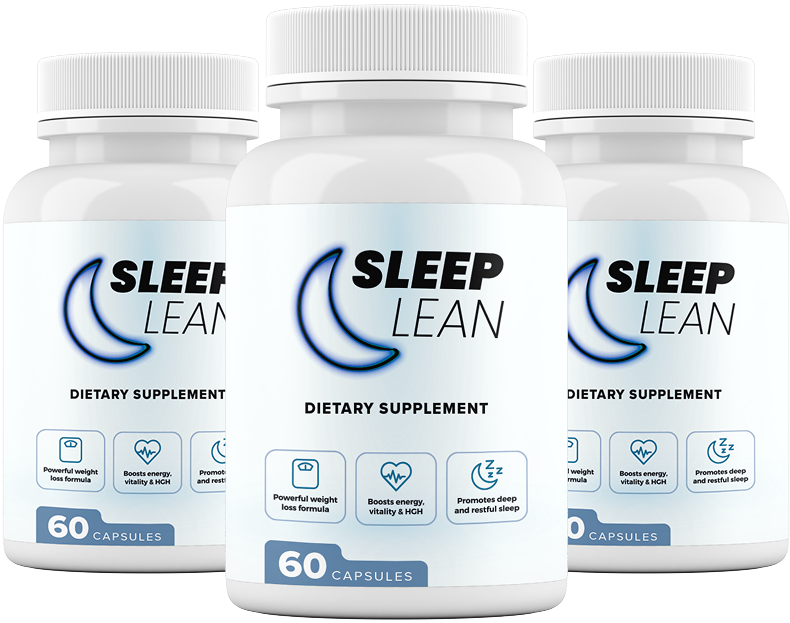

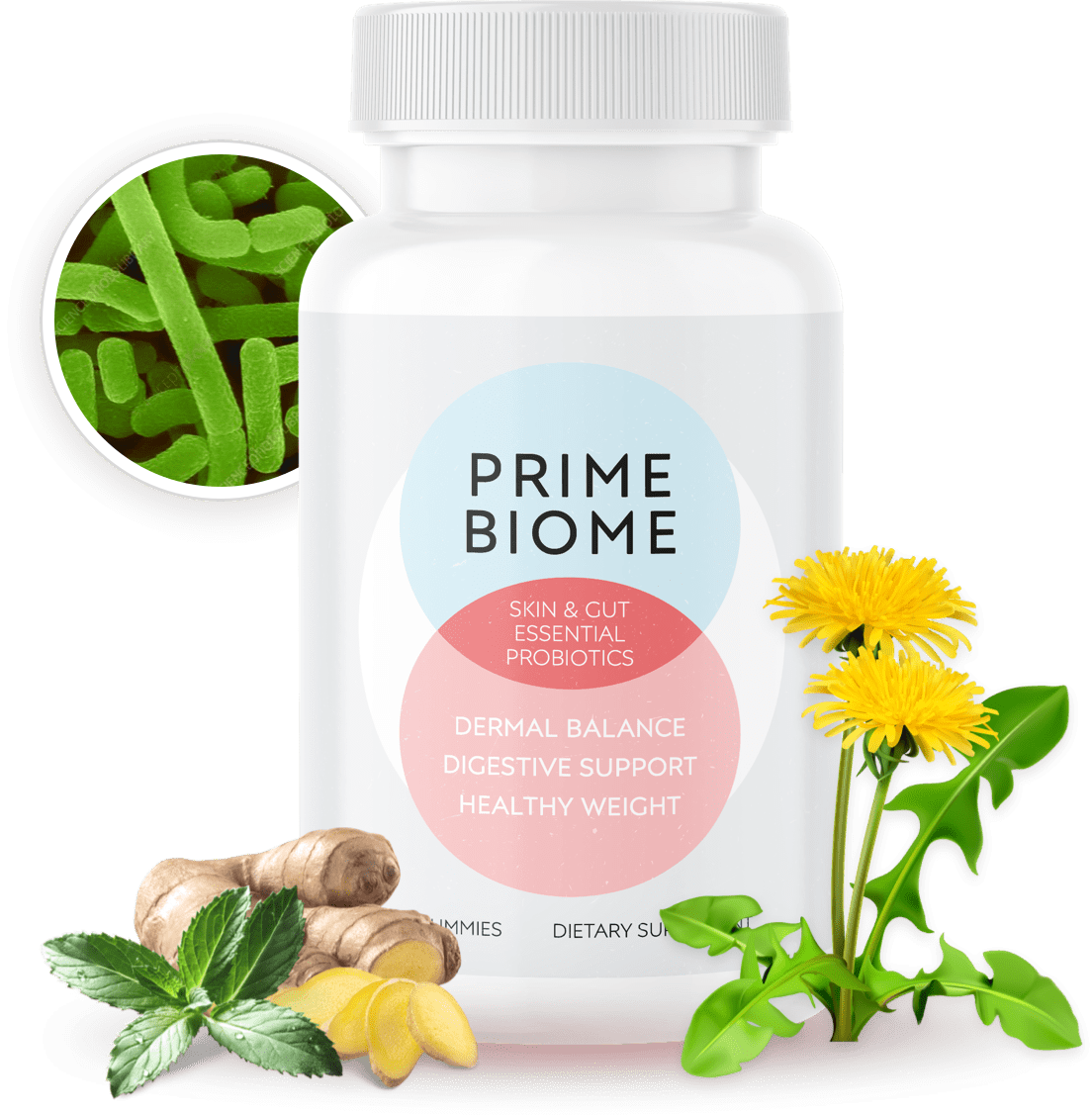


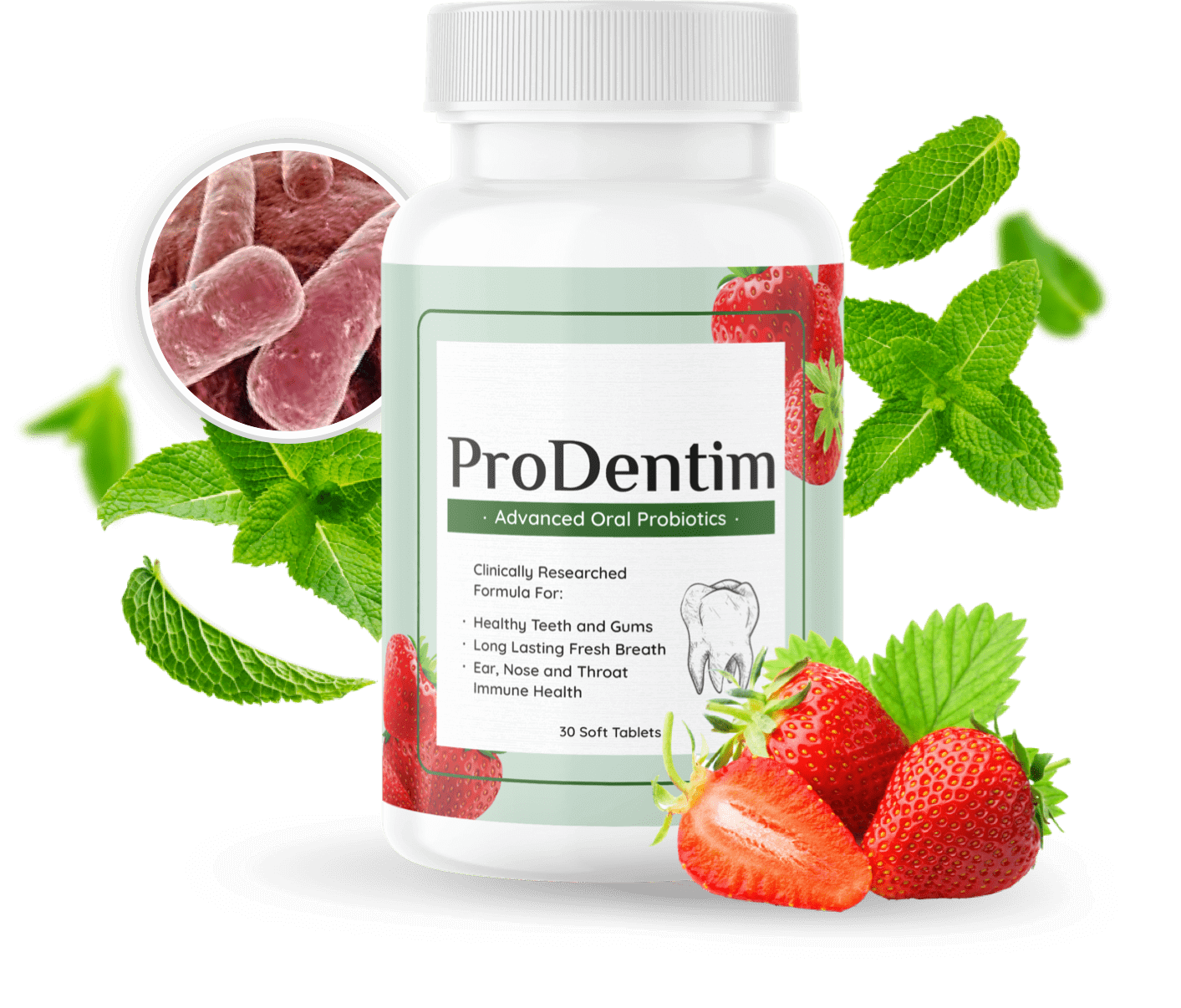

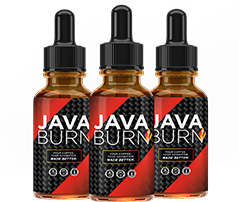

What do you think?
Show comments / Leave a comment